Thomas McGuire
Investigating the Evolvability of Web Page Load Time
Feb 22, 2018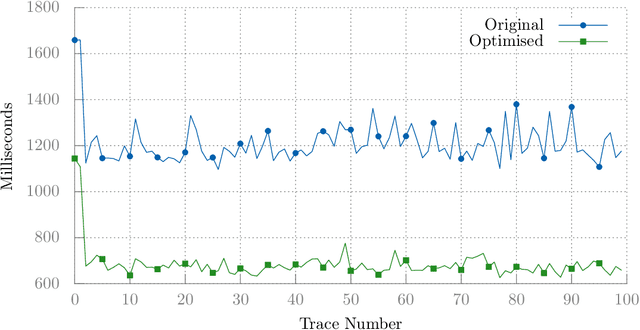
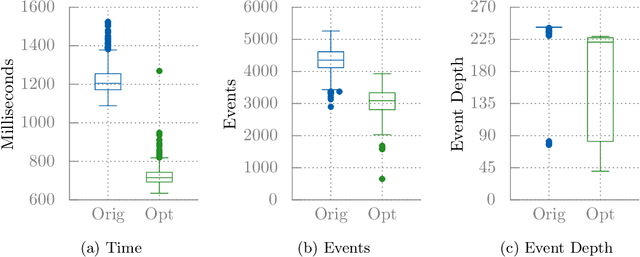
Abstract:Client-side Javascript execution environments (browsers) allow anonymous functions and event-based programming concepts such as callbacks. We investigate whether a mutate-and-test approach can be used to optimise web page load time in these environments. First, we characterise a web page load issue in a benchmark web page and derive performance metrics from page load event traces. We parse Javascript source code to an AST and make changes to method calls which appear in a web page load event trace. We present an operator based solely on code deletion and evaluate an existing "community-contributed" performance optimising code transform. By exploring Javascript code changes and exploiting combinations of non-destructive changes, we can optimise page load time by 41% in our benchmark web page.
A Search for Improved Performance in Regular Expressions
Apr 13, 2017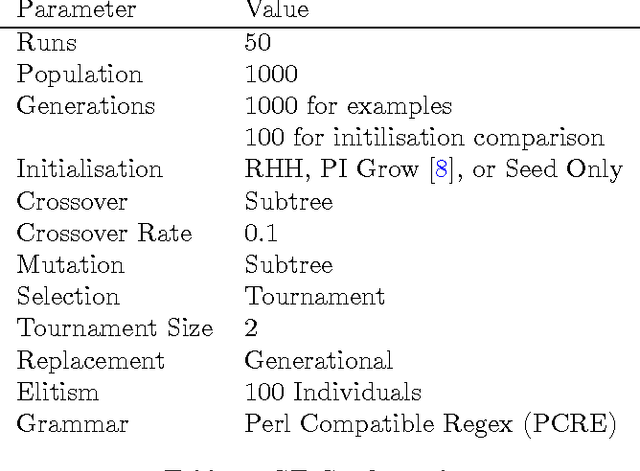
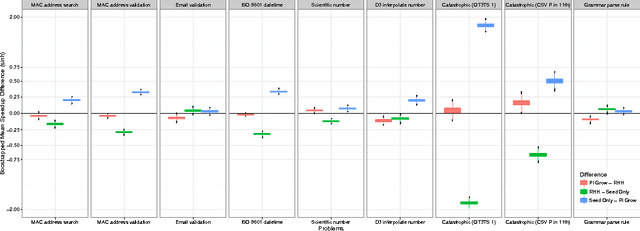
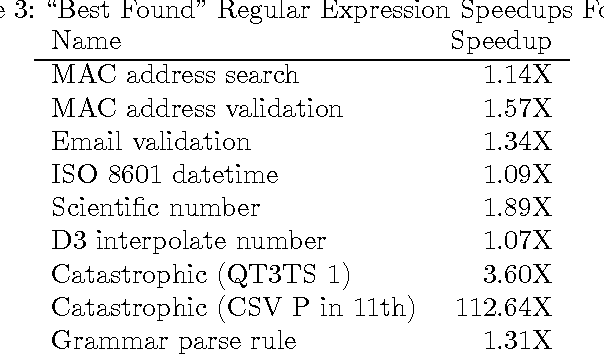

Abstract:The primary aim of automated performance improvement is to reduce the running time of programs while maintaining (or improving on) functionality. In this paper, Genetic Programming is used to find performance improvements in regular expressions for an array of target programs, representing the first application of automated software improvement for run-time performance in the Regular Expression language. This particular problem is interesting as there may be many possible alternative regular expressions which perform the same task while exhibiting subtle differences in performance. A benchmark suite of candidate regular expressions is proposed for improvement. We show that the application of Genetic Programming techniques can result in performance improvements in all cases. As we start evolution from a known good regular expression, diversity is critical in escaping the local optima of the seed expression. In order to understand diversity during evolution we compare an initial population consisting of only seed programs with a population initialised using a combination of a single seed individual with individuals generated using PI Grow and Ramped-half-and-half initialisation mechanisms.
 Add to Chrome
Add to Chrome Add to Firefox
Add to Firefox Add to Edge
Add to Edge